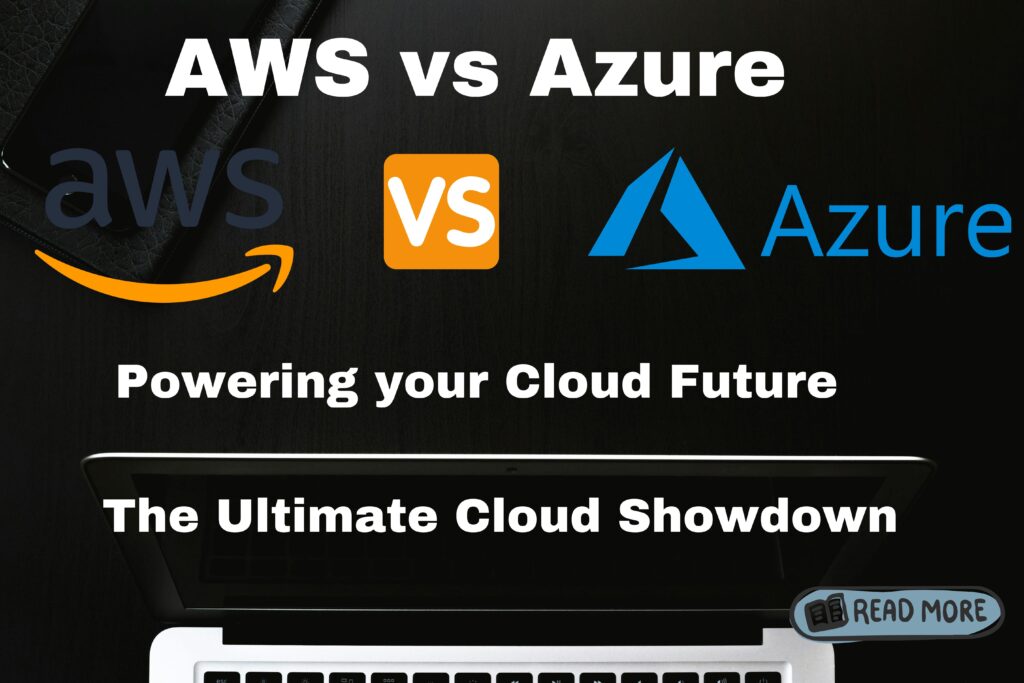Explore the AWS vs Azure debate in the cloud computing arena
Discover the strengths, service offerings, pricing models, and integration capabilities of these two industry titans. Ultimately, the choice between AWS and Azure depends on individual business needs, infrastructure, and budget considerations.
Introduction:
In the ever-evolving landscape of cloud computing, two giants stand tall, offering a plethora of services to businesses and individuals alike. Amazon Web Services (AWS) and Microsoft Azure dominate the market, each with its strengths and unique offerings. In this blog post, we’ll delve into the AWS vs Azure debate, exploring key differences, advantages, and considerations for users.
Understanding the Cloud Giants:
1. Amazon Web Services (AWS):
AWS, launched in 2006, is often considered the pioneer of cloud computing. Boasting a vast global infrastructure, AWS provides an extensive range of services, including computing power, storage, databases, machine learning, analytics, and more. Its robust ecosystem and market share make it a top choice for many enterprises.
2. Microsoft Azure:
Azure entered the scene in 2010 and quickly gained ground, leveraging Microsoft’s existing customer base and integration with popular tools like Windows Server and Active Directory. Azure offers a comprehensive set of services, covering computing, databases, AI, IoT, and more. Its hybrid cloud capabilities make it appealing to businesses with existing Microsoft investments.
Comparative Analysis:
Now, let’s compare AWS and Azure across key parameters:
1. Global Infrastructure:
– AWS: With a vast global network of data centers, AWS has a significant edge in terms of geographical reach, ensuring low-latency access to services worldwide.
– Azure: Microsoft has made substantial investments in expanding Azure’s global footprint, providing a competitive network of data centers.
2. Service Offerings:
– AWS: Renowned for its extensive service catalog, AWS covers a broad spectrum, including Amazon EC2, S3, RDS, Lambda, and more. Its dominance in the market is partly attributed to the depth and breadth of its services.
– Azure: Microsoft’s Azure services, while comprehensive, are deeply integrated with Windows technologies. This can be advantageous for businesses with existing Microsoft ecosystems.
3. Pricing Models:
– AWS: Known for its pay-as-you-go model, AWS provides flexibility with on-demand pricing, reserved instances, and spot instances. This flexibility suits businesses with varying workloads.
– Azure: Azure’s pricing model is competitive, offering similar pay-as-you-go options. However, users may find nuanced differences in pricing for specific services.
4. Integration and Compatibility:
– AWS: AWS is renowned for its openness and broad compatibility, allowing integration with various programming languages, frameworks, and third-party tools.
– Azure: Leveraging Microsoft’s suite of products, Azure seamlessly integrates with Windows Server, Active Directory, and other Microsoft services, providing a cohesive experience for businesses with Microsoft-centric environments.
Conclusion:
Choosing between AWS and Azure depends on factors such as specific business needs, existing infrastructure, and budget considerations. Both cloud giants offer robust solutions, and the decision ultimately comes down to individual requirements. As the cloud computing landscape continues to evolve, staying informed about the latest features and updates from both AWS and Azure is crucial for making well-informed decisions in this dynamic environment. Whether you’re a startup, a growing business, or an enterprise, the AWS vs Azure debate is a pivotal consideration on your journey to the cloud.
Java vs Python Deciding the Future of Your Coding Career

